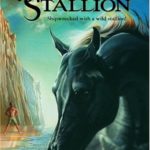Fantasy For Young and Old
A fantasy series for all ages and stages. That’s essentially the way WaterBrook marketed Donita Paul‘s DragonKeeper Chronicles. When book one, DragonSpell, came out, I had my doubts about that strategy. I mean, if it was shelved with adult books, how would YA readers find it? But if it was shelved with YA books, how would adults find it?
Interestingly, over the years I discovered the books in both places, sometimes in the same store. And evidently the strategy has worked, because all five books seem to be doing very well, at least at Amazon.com.
I’ve been a fan of this series for some time. I love quests and symbolism and fresh creatures and new worlds. Donita gives readers all of that. But what makes the books appeal to both young and old? Or do they?
One reviewer called DragonLight, the book CSFF Blog Tour is featuring this month, “family friendly.” That’s a good term. I considered “light fantasy” as opposed to “fantasy-lite” and in opposition to “dark fantasy.”
The fantasy world of Amara is one adults can enjoy. Seven high races, seven low races, but all created by Wulder, an allegorical depiction of God. Throw in the meech dragons and the minnekens, and now we have an adult-sized mystery.
In fact there are lots of issues in this series that should put adults to work. Paladin, a representative of the church, faces opposition that has interesting effects on him—points easily missed by the younger audience reading for the enjoyment of a good story.
But no readers will miss the main characters’ dependence on Wulder or their reliance on the Tomes and its principles for the source of truth. In other words, the DragonKeeper Chronicles have something for everyone when it comes to the themes.
In characters, there are adults and children with which readers can identify. In the early books, the protagonist was a young girl, then a young man. But there were wise adults, well-drawn and incredibly fresh and delightful, that older readers could easily identify with. As the main characters matured in DragonFire and now in DragonLight, there are still key roles for children. And of course, there are the minor dragons.
The plot of these books is probably the part that is most suited for younger readers. There’s lots of action and a minimum of actual on-stage violence. Nothing graphic or dark. Some of the antagonists even seem comical or sympathetic and even redeemable. Over and over the good wizards win, and they do so because they use the gifts Wulder has equipped them with, because they are doing the job Wulder gave them to do, and because they are relying on the principles Wulder has given them to live by.
Fantasy for all ages? It’s an interesting concept. All in all, I think Donita Paul pulled off it in the DragonKeeper Chronicles.
See what others on the CSFF Blog Tour have to say about DragonLight.
Brandon Barr Justin Boyer Jackie Castle Valerie Comer Karri Compton CSFF Blog Tour Gene Curtis Stacey Dale D. G. D. Davidson Jeff Draper April Erwin Karina Fabian Beth Goddard Mark Goodyear Andrea Graham Todd Michael Greene Katie Hart Timothy Hicks Christopher Hopper Joleen Howell Jason Joyner Carol Keen Magma Terri Main Margaret Shannon McNear Melissa Meeks Rebecca LuElla Miller Nissa John W. Otte Deena Peterson Steve Rice Cheryl Russel Ashley Rutherford Chawna Schroeder Sean Slagle James Somers Robert Treskillard Steve Trower Laura Williams








































